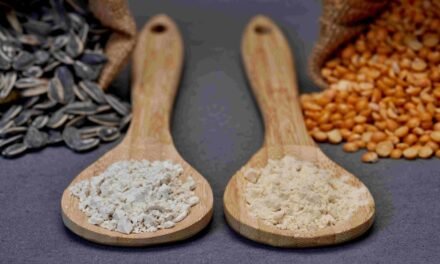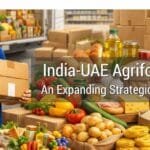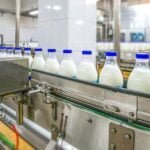UAE is well on track to increase food sector contribution to the GDP by $10 billion and create more than 20,000 jobs in food sector, says minister.
October, 2024: The UAE plans to create 20,000 jobs in food sector by 2030, aiming to cut food imports from 90% to 50% by 2050, according to H.E. Abdullah bin Touq Al Marri, the Minister of Economy. He shared this vision at a recent event organized by the UAE Food & Beverage Business Group.
These efforts are designed to boost the food sector’s contribution to the UAE’s economy by $10 billion. The UAE is making significant investments in food security to ensure a steady food supply for its residents.
“The UAE’s commitment to food security is evident from the fact that UAE has placed food security as a national priority, since the 2007 global food crisis. We are proud of our progress in domestic food production, with the aim of reducing food imports from 90 per cent to 50 per cent by mid-century,” he said.
The UAE has been heavily investing in food security to ensure a sustainable food supply for residents.
The UAE saw a total volume of food imports in 2023 amounted to $23 billion, while food exports reached $6.6 billion. During the first half of the year, the sector experienced a 20 per cent growth in total trade. Food imports increased by 23 per cent, and exports saw a 19 per cent rise.
Al Marri said the growth potential of the GCC food and beverage sector is expected to hit $128 billion by 2029 and urged the industry to harness this momentum to drive the UAE’s cluster strategy further.
“In line with the UAE Food & Agricultural Transformation Strategy, we are well on track to increase food sector contribution to the GDP by $10 billion and create more than 20,000 jobs. This growth should not remain a statistic — it represents livelihoods, opportunities, and a sustainable future for our country. Together, we can innovate for a sustainable tomorrow and ensure that the UAE remains a global leader in food security,” he added.
While speaking at the two-day event organised by UAE Food & Beverage Business Group (F&B Business Group), the minister outlined the key pillars of the UAE’s food security, which is anchored in fostering innovation through world-class R&D and nurturing future food disruptors who will grow into global champions, as well as embedding sustainable practices across the food production value chain to ensure the protection of our environment for future generations.
The two-day event was organised by UAE Food & Beverage Business Group F&B Business Group (F&B Group) under the patronage of the UAE Ministry of Economy, focusing on the theme “Future Consumer, Future Government, and Future Food” in strategic partnership with the Dubai Chamber and features FoodTech Valley as an organising partner. Hosted at the Le Meridien Airport Hotel in Dubai, the event was also supported by the Abu Dhabi Food Hub and DP World.
A high-level discussion was held on the Food Cluster strategy which saw vital ministries, including the Ministry of Industry and Advanced Technology, Ministry of Economy, and Ministry of Climate Change and Environment, convening to explore policy reforms, collaboration, and investment in the sector.
“The idea behind creating the clusters is to enable dialogues between all the stakeholders, including universities, scientists, research institutions and ministries, to ensure food security in the future. As an import-heavy country, we know that there are a number of things that we, as a key sector, can do to enhance food security and supply chain, increase export, protect our market and practical policies. These topics should be openly discussed between the stakeholders,” said Abdullah Ahmad Al Saleh, undersecretary of the Ministry of Economy.
Have a news or topic to share with industry? Write to us editorial@pfionline.com

















